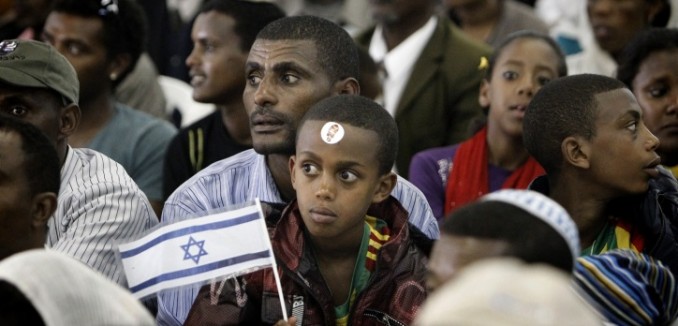The Knesset officially enacted a national day to celebrate Aliyah on Tuesday, with broad multi-partisan backing. The bill passed its first reading on March 30 with unanimous support and became law after its second and third readings.
Yom HaAliyah will be marked on 7 Cheshvan (October-November), coinciding with the week of the Torah portion in which Abraham is commanded by God to migrate to the Land of Israel. The event is intended to honor history’s first wave of mass Aliyah on 10 Nisan, when the Bible recalls that the prophet Joshua led the Israelites over the Jordan River into the Promised Land. Legislators decided to honor this occasion seven months later, on an equally symbolic date, because 10 Nisan coincides with schools’ Passover vacation and normally a Knesset recess.
The purpose of Yom HaAliyah, according to the law, is to acknowledge the importance of Aliyah as the foundation of Israel’s existence and development as a multi-cultural society, and to celebrate the contributions of new immigrants. It will be marked with special debates in the Knesset and its Aliyah Committee, a special event in Cabinet, a function at the President’s Residence, and other educational events in schools, the IDF, and the Israel Police.
Although the occasion is being marketed as a new “national holiday,” it is not an official public holiday (like Independence Day) but is rather designated as a “day of commemoration,” giving it similar standing to Herzl Day, for example. The Jewish Agency for Israel said it welcomed any effort to celebrate olim and promote their integration into Israeli society.
The festival began its life in 2012 as an initiative led the TLV Internationals organization, a grassroots movement of Tel Aviv-based immigrants. The bill to enshrine the day in law was initiated by MKs Micki Zohar (Likud), Robert Ilatov (Yisrael Beiteinu), Hilik Bar (Labor), and Michael Oren (Kulanu). Members from all the Knesset’s parties bar Meretz, the Joint List, and United Torah Judaism appear on the list of sponsors.
Israel’s Declaration of Independence vows that the state “will be open for Jewish immigration and for the Ingathering of the Exiles.” In its iconic Law of Return in 1950, Israel granted an automatic right of immigration and citizenship to Jews all around the world; this was later extended to include non-Jewish persons with at least one Jewish grandparent. Israel has since experienced several mass waves of immigration, including from the Arab world in the 1950s, from Ethiopia in the 1980s, and from the former Soviet Union in the 1970s. According to the latest population figures, a quarter of Jewish Israelis are foreign-born.
Israel welcomed 30,883 new immigrants in 2015, according to the Jewish Agency, representing a twelve-year high. 70 percent of the new immigrants were from France, Ukraine, and Russia alone; immigration from the Anglosphere remained negligible and possibly net negative, but Belgium, Brazil, and Italy contributed sizeable figures relative to their small populations.
In the Book of Joshua, God commands Joshua to commemorate the Hebrews’ entry into Israel with a memorial of stones on the Jordan riverbed. Three thousand years on, as Jews move to Israel “by choice, not just as a refuge,” TLV Internationals founder Jay Shultz says the divine command to commemorate the first mass aliyah is not just being honored but lived as a practical reality: “The best of Jewish life is when we commemorate the ancient in a modern, relevant way.”
Eylon Aslan-Levy is an Israeli news anchor and political commentator. He is a graduate of Oxford, Cambridge and the IDF.
[Photo: Miriam Alster / Fash90]




